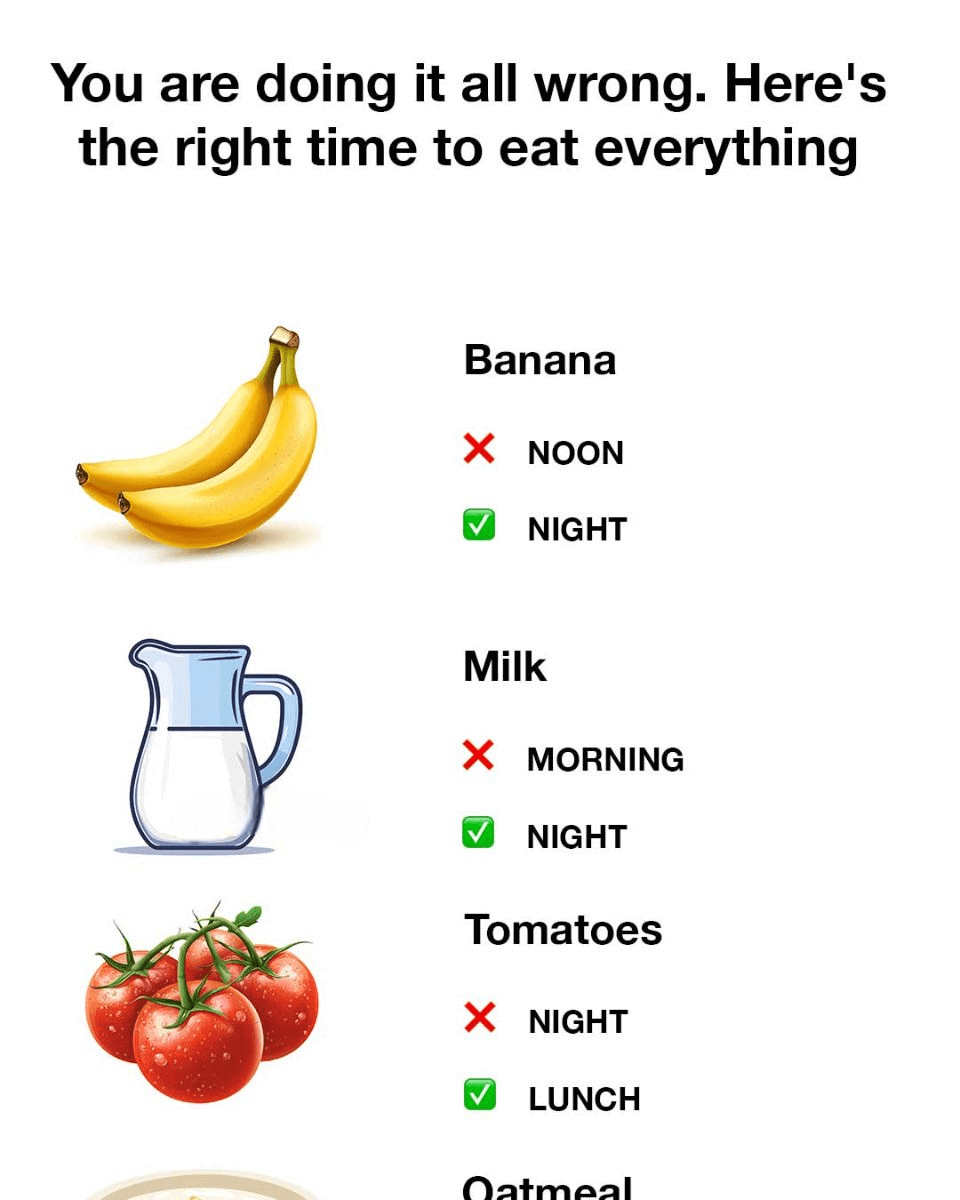In today’s fast-paced world, we often prioritize what we eat over when we eat it. However, the timing of meals plays a vital role in how our body digests food, manages energy, and maintains a healthy weight. Understanding the ideal time to eat certain foods can boost overall well-being and help you make smarter dietary choices.
The Science Behind Meal Timing and Its Impact on Health
Scientific research highlights that when you eat can be just as important as what you eat. Aligning meals with your body’s circadian rhythms—the natural 24-hour cycle that regulates physiological functions—can improve blood sugar control and insulin function. On the other hand, eating late at night has been associated with higher risks of obesity and metabolic conditions. Recognizing how internal clocks influence metabolism is key to optimizing your health.
The Role of Circadian Rhythms in Digestive Health
Circadian rhythms influence many bodily functions, including digestion. Your digestive system is most efficient during daylight hours and slows significantly at night. When meals are timed in sync with these cycles, the body can absorb nutrients more effectively. Eating outside of these natural rhythms can lead to poor digestion and increased risk of chronic disease.
The Consequences of Eating at the Wrong Time
Poor meal timing can negatively impact health. Eating large meals at night may disrupt sleep and contribute to weight gain. Irregular eating habits can also destabilize blood sugar levels, increasing the risk of type 2 diabetes. Inconsistent timing may hinder nutrient absorption, potentially causing deficiencies and digestive discomfort.
Top 15 Foods and Their Optimal Eating Times
Different foods offer the most benefits when consumed at specific times. Below are 15 common foods and the times when your body is best suited to enjoy them.
Bananas: Ideal for the Evening
Bananas contain potassium and magnesium, which help relax muscles and calm the nervous system. Eating a banana in the evening may promote better sleep, making it a more suitable choice later in the day than at noon.
Milk: Nighttime is Best
Milk contains tryptophan, an amino acid that encourages sleep. Though traditionally consumed in the morning, drinking milk before bed may enhance sleep quality, especially for those dealing with insomnia.
Oatmeal: Perfect Morning Meal
Oatmeal is packed with complex carbohydrates that provide long-lasting energy. Eating oatmeal in the morning helps regulate blood sugar levels and keeps you full, supporting better focus and energy throughout the day.
Tomatoes: Best at Lunchtime
Tomatoes are rich in lycopene, a powerful antioxidant. Lycopene is absorbed more efficiently when consumed with fat. Having tomatoes with lunch—paired with healthy fats like olive oil—boosts absorption and provides antioxidant protection.
Nuts: Great Afternoon Snack
Nuts are high in healthy fats, fiber, and protein, making them an ideal afternoon snack. They can help maintain energy levels, curb hunger, and reduce the temptation to overeat at dinner.
Dark Chocolate: Enjoy in the Evening
Dark chocolate contains compounds like magnesium and serotonin that promote relaxation. A small portion in the evening can help you unwind and improve sleep quality.
Green Tea: Morning or Afternoon Energy Boost
Green tea contains antioxidants and moderate caffeine, making it suitable for consumption in the morning or early afternoon. It helps boost metabolism, supports focus, and offers a calm alertness without overstimulating the nervous system.
Yogurt: Best Mid-Morning
Yogurt is rich in probiotics and supports digestive health. Having yogurt mid-morning offers protein, calcium, and beneficial bacteria that help your gut and keep you energized until your next meal.
Rice: Midday is Ideal
Rice is carbohydrate-dense and digests quickly, making it a suitable choice for lunch. Eating rice during the day can fuel physical and mental activity, whereas consuming it at night may contribute to sluggishness or sleep disruption.
Apples: Morning Digestion Boost
Apples are high in fiber and pectin, which promote digestion and detoxification. Eating apples in the morning can kickstart your metabolism and stabilize blood sugar levels.
Cheese: Evening Indulgence
Cheese contains tryptophan and calcium, which can help with relaxation. A small portion in the evening may support sleep and make for a satisfying bedtime snack.
Coffee: Mid-Morning is Optimal
Coffee is most effective when consumed between 9:30 AM and 11:30 AM. At this time, natural cortisol levels start to dip, so drinking coffee can provide a well-timed energy lift without disrupting your body’s natural alertness.
Fish: Ideal for Lunch or Dinner
Fish is rich in protein and omega-3 fatty acids, supporting brain and heart health. Eating fish at lunch or dinner maximizes nutrient absorption and promotes long-term wellness.
Eggs: Morning Protein Source
Eggs are a powerhouse of high-quality protein, perfect for breakfast. They promote satiety, help control calorie intake, and offer essential nutrients to energize your day.
Conclusion: Syncing Your Diet with Your Body’s Natural Clock
Optimizing the timing of your meals can be a game-changer for your health. By understanding when your body is most prepared to digest and absorb specific foods, you can enhance energy, digestion, and overall wellness. Adopting these meal-timing strategies is a simple yet effective way to live in harmony with your body’s natural rhythms.
